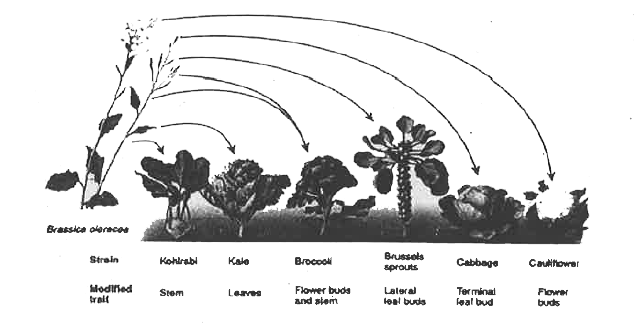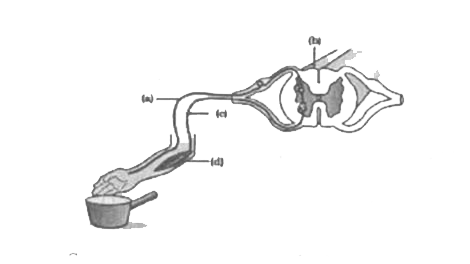Appendix in human is considered as vestigial. Why?Solution in Kannada
The appendix is probably the most widely known vestigial human organ. Known as the .vermiform process., it is said that these tiny appendices may have once helped our primate ancestors with the digestion of cellulose-rich plants. Now it has become a vestigial organ as our-food habits have changed.
Topper's Solved these Questions
- HEREDITY AND EVOLUTIONBOOK - SUBHASH PUBLICATIONCHAPTER - HEREDITY AND EVOLUTIONEXERCISE - VALUE BASED QUESTIONS
3 Videos
- HEREDITY AND EVOLUTIONBOOK - SUBHASH PUBLICATIONCHAPTER - HEREDITY AND EVOLUTIONEXERCISE - LONG QUESTIONS
4 Videos
- CONTROL AND COORDIANTION BOOK - SUBHASH PUBLICATIONCHAPTER - CONTROL AND COORDIANTION EXERCISE - VALUE BASED QUESTION
5 Videos
- HOW DO ORGANISMS REPRODUCE ?BOOK - SUBHASH PUBLICATIONCHAPTER - HOW DO ORGANISMS REPRODUCE ?EXERCISE - VALUE BASED QUESTION
3 Videos
Similar Questions
Study the picture below 'variation under domestication of wild cabbage plant and describe.

View SolutionHow do Mendel's experiments show that traits may be dominant or recessive?
View SolutionLabel the parts (a), (b), (c) and (d) and show the direction of flow of electrical signals in the following figure.

View SolutionIt is advisable to use only disposable syrings.Elaborate.
View SolutionWhich one is vestigial in humans ?
View SolutionWhich one is vestigial in humans ?
View SolutionThis is not an example of vestigial organ in humans :
View SolutionVestigial organs such as the appendix exist because
View SolutionWhich are vestigial in humans?
View SolutionIn human beings vestigial organs are
View SolutionVestigial organs in humans
View SolutionAppendix is useless to humans.
View SolutionSome vestigial organs of human are
View SolutionThe organ in human body which considered as vestigial organ is
View SolutionVermiform Appendix in humans is a ............ evidence of evolution- (A) Embryological (B) Palaeontological (C) vestigial organic (D) None of these
View Solution
